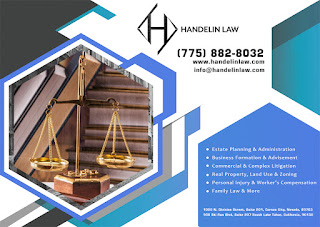Tips To Help You Find The Right Litigation Attorney
Litigation is the process of taking a case to court. The litigation process is usually connected to civil lawsuits—where one party sues another—but in the general sense, the same litigation process works in criminal cases, in which laws are broken.
When some people are charged with a crime, they think that it is a good idea to represent themselves and save some money by not hiring a proper lawyer to represent them. In all reality, you could end up spending even more money or seriously disadvantaging yourself by taking a similar route. It is important to keep in mind that a trial can be a very long and complex procedure, so it helps to have an experienced litigation lawyer on your side to help you every step of the way. Not only will they ensure that all paperwork is filled out and filed correctly, but they can also offer you legal advice at each stage of the trial process.
Our complex litigation experience includes lawsuits with difficult or novel legal issues, electronic discovery issues, high volume document production, class actions, and multi-party disputes.
But how do you ensure that you are hiring the best litigation lawyer for your circumstances? There is no denying that there are plenty of these lawyers out there, it's just a matter of wheedling out the good from the bad:
1. Speak To Family And Friends:
You never know who has used a litigation lawyer in the past so, by asking family and friends for suggestions, you may be able to find one who has been recommended.
2. Search Online:
In this age of the internet, many lawyers choose to advertise their legal services online. Looking through the profile of a lawyer before you meet with them can actually tell you a lot about the person you are thinking about hiring.
3. Ask about Experience:
You should always hire a litigation lawyer who has been practising for a while - the more experienced he (or she) is, the better they will be able to represent you. You may also find that an experienced lawyer has dealt with a case similar to yours in the past, giving them invaluable experience that could make or break your case.
4. Take Your Time:
You should never hire the first lawyer that you speak to. As the initial meeting is generally free, you should try and meet with two or three before making a decision.
5. Be Honest:
If you want your litigation lawyer to help you out, you need to make sure that you tell them absolutely everything about your case. If you do not do this, your lawyer will be unable to help you as well as they would have otherwise.
By using the above tips you can make sure that you find the best litigation lawyer for your needs and that you are comfortable in your choice. You should never try to represent yourself in court, as you could seriously damage your chances of coming out on top - instead, hire a lawyer who specializes in litigation and allow them to represent you to the best of their ability.
The process of bringing a lawsuit to court begins with the plaintiff filing a complaint, and usually, a summons is also filed, giving the defendant notice of the lawsuit and setting a deadline for a response. Usually, a date is set for the beginning of the lawsuit, and the parties begin gathering information and, taking depositions (statements), and records. This is called the discovery process.
Motions are filed with the court by both parties, some requesting information and some procedural. Procedural motions might include a request for a change of venue (the place of the trial) or a request that the case is heard by a judge or jury. The process working up to an actual court date can take several months, as information is gathered and motions are presented and decisions are made.
Finally, the lawsuit comes to court at an appointed date. A judge or jury hears the case and renders a decision. If either party has a good reason for questioning the verdict, they can appeal. The appeals process goes up through higher courts.
When some people are charged with a crime, they think that it is a good idea to represent themselves and save some money by not hiring a proper lawyer to represent them. In all reality, you could end up spending even more money or seriously disadvantaging yourself by taking a similar route. It is important to keep in mind that a trial can be a very long and complex procedure, so it helps to have an experienced litigation lawyer on your side to help you every step of the way. Not only will they ensure that all paperwork is filled out and filed correctly, but they can also offer you legal advice at each stage of the trial process.
Our complex litigation experience includes lawsuits with difficult or novel legal issues, electronic discovery issues, high volume document production, class actions, and multi-party disputes.
But how do you ensure that you are hiring the best litigation lawyer for your circumstances? There is no denying that there are plenty of these lawyers out there, it's just a matter of wheedling out the good from the bad:
1. Speak To Family And Friends:
You never know who has used a litigation lawyer in the past so, by asking family and friends for suggestions, you may be able to find one who has been recommended.
2. Search Online:
In this age of the internet, many lawyers choose to advertise their legal services online. Looking through the profile of a lawyer before you meet with them can actually tell you a lot about the person you are thinking about hiring.
3. Ask about Experience:
You should always hire a litigation lawyer who has been practising for a while - the more experienced he (or she) is, the better they will be able to represent you. You may also find that an experienced lawyer has dealt with a case similar to yours in the past, giving them invaluable experience that could make or break your case.
4. Take Your Time:
You should never hire the first lawyer that you speak to. As the initial meeting is generally free, you should try and meet with two or three before making a decision.
5. Be Honest:
If you want your litigation lawyer to help you out, you need to make sure that you tell them absolutely everything about your case. If you do not do this, your lawyer will be unable to help you as well as they would have otherwise.
By using the above tips you can make sure that you find the best litigation lawyer for your needs and that you are comfortable in your choice. You should never try to represent yourself in court, as you could seriously damage your chances of coming out on top - instead, hire a lawyer who specializes in litigation and allow them to represent you to the best of their ability.
The process of bringing a lawsuit to court begins with the plaintiff filing a complaint, and usually, a summons is also filed, giving the defendant notice of the lawsuit and setting a deadline for a response. Usually, a date is set for the beginning of the lawsuit, and the parties begin gathering information and, taking depositions (statements), and records. This is called the discovery process.
Motions are filed with the court by both parties, some requesting information and some procedural. Procedural motions might include a request for a change of venue (the place of the trial) or a request that the case is heard by a judge or jury. The process working up to an actual court date can take several months, as information is gathered and motions are presented and decisions are made.
Finally, the lawsuit comes to court at an appointed date. A judge or jury hears the case and renders a decision. If either party has a good reason for questioning the verdict, they can appeal. The appeals process goes up through higher courts.





Thank you for sharing useful information. Visit our website for best legal services and elder law care services .
ReplyDelete